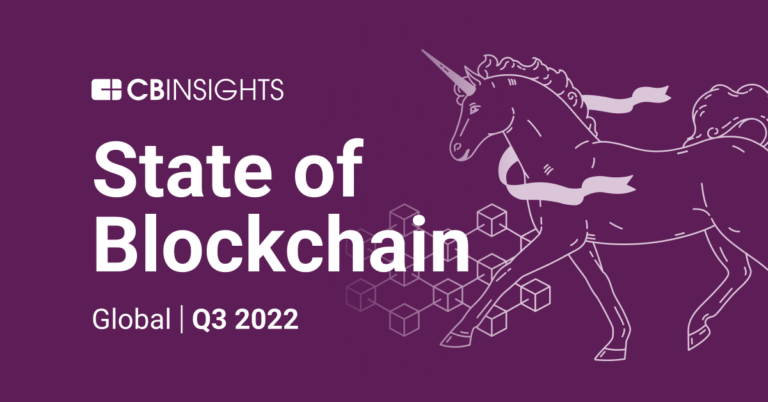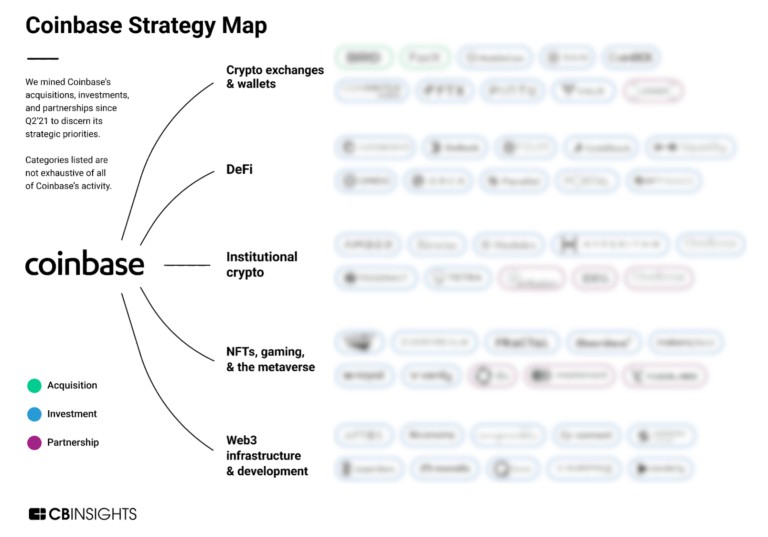
Zebec
Founded Year
2021Stage
Seed VC - IV | AliveTotal Raised
$33.83MValuation
$0000Last Raised
$8.5M | 2 yrs agoMosaic Score The Mosaic Score is an algorithm that measures the overall financial health and market potential of private companies.
+14 points in the past 30 days
About Zebec
Zebec operates as a company focused on decentralized finance (DeFi) technology. Its main service involves enabling real-time, continuous streams of payments, which allows businesses, employees, and consumers to reimagine their payment, investment, and purchasing processes. The company was founded in 2021 and is based in San Francisco, California.
Loading...
Loading...
Research containing Zebec
Get data-driven expert analysis from the CB Insights Intelligence Unit.
CB Insights Intelligence Analysts have mentioned Zebec in 2 CB Insights research briefs, most recently on Oct 31, 2022.

Oct 31, 2022 report
State of Blockchain Q3’22 ReportExpert Collections containing Zebec
Expert Collections are analyst-curated lists that highlight the companies you need to know in the most important technology spaces.
Zebec is included in 3 Expert Collections, including Unicorns- Billion Dollar Startups.
Unicorns- Billion Dollar Startups
1,244 items
Blockchain
8,779 items
Companies in this collection build, apply, and analyze blockchain and cryptocurrency technologies for business or consumer use cases. Categories include blockchain infrastructure and development, crypto & DeFi, Web3, NFTs, gaming, supply chain, enterprise blockchain, and more.
Fintech
9,294 items
Companies and startups in this collection provide technology to streamline, improve, and transform financial services, products, and operations for individuals and businesses.
Latest Zebec News
Apr 12, 2024
For our listeners, NikhilPradhan is an attorney at Foley & Lardner, they are a leadinglaw firm with nationally recognized practices in areas includingsecurities, finance, commercial litigation, trademark, copyright,and business law. Nikhil, great to have you. Tell us a little bitabout yourself and how you ended up at Foley & Lardner. Nikhil Pradhan Absolutely. So the majority of my practice is intellectualproperty and a lot of what I do is helping companies identify andprotect their innovations across a variety of different technologyareas, as well as navigate the protections that their competitionhas. And also support, you know, different kinds of collaborations.So licensing agreements, development agreements, things like that.As my career has progressed at Foley I've gotten involved a lotin the AI space, so helping companies that are either AI first,really at the cutting edge of these technologies, as well aslooking to implement them into their existing platforms and usethat to level everything up. Parth Shah So now that we've had a little bit about your background.What are you most passionate about in these verticals that you workin? What's something that you really enjoy researching orworking with on a daily basis? Nikhil Pradhan For me, and this is maybe a common refrain for a lot of peoplewho work in this area, it's really being able to learn about alot of different technologies and see things that are at thecutting edge and how companies are deploying them and using them tosolve customer problems and create real value in the market,especially when it comes to artificial intelligence and thefinancial space as well. It seems like, while things are stillpretty early, there's a real moment here where there are a lotof opportunities for these technologies to work together and reallyexpand the reach of what customers can access and what tools theyhave available, democratize things that have maybe been centralizedin the past or help people find ways to create value from the datathey already have, the knowledge they already have, and kind of geta bigger platform for getting value for that. Parth Shah That's great. Then how do you see the application of virtualassets, blockchain, and AI affecting the legal industry? And howdoes that somewhat carry over to the work you do on a daily basis?How does it affect the clients that you work with? Nikhil Pradhan Yeah, I think from the legal perspective, it's interestingbecause there's so much unstructured data that we'reworking with – whether it's conversations, emails, orjust legal documents themselves. And there's a lot of untappedknowledge in there where artificial intelligence could certainlyhelp unlock that and generate insights, help people summarizethings. And then on the on the digital assets side, it seems likethings are still early, but so early there's a lot ofopportunity where there's so much unstructured data out therewhen it comes to financials and in various forms of blockchainassets. And so if there are companies that are looking to build inthis space and solve problems, ways that they can really do thatmight be finding ways to tap into the information that's outthere, structure information that might be spread across a lot ofdifferent areas right now. I think another area that could be interesting and kind ofcombine all of these different fields together is fraud detectionor cybersecurity and privacy where conventionally a lot of theseactivities were done in like a rules-based way or even manually. Itseems like there's an opportunity now where artificialintelligence could be used to, more accurately and with fewerresources, surface possible fraudulent situations. Then people whowere managing that would have a lot more comfort and confidencethat when they are trying to address certain situations, they knowit's already been filtered well and they can devote theirattention to the most critical issues. As digital assets continueto get more traction and look to demonstrate their value to largeraudiences, this seems like a great opportunity where companies canbuild better security, better antifraud practices into theirtechnology and into their platforms. Being proactive on thesematters is critical to handling any kind of upcoming regulationsthat might be in play, and they'll already have the technologyand solved some of these problems that are top of mind for a lot ofpeople who are looking at these areas. Parth Shah That's a good point you bring up. Grayscale, one of theleading bitcoin ETF managers, also released a piece where they saidthe intersection of AI and crypto is meant to eliminate the deepfakes that we're seeing right now that occur because of AI. Inother words, blockchain digital assets are used as the method toprevent fraud, and you would be able to do that with decentralizedidentities, cybersecurity, and better data ownership. As you mentioned there's a lot of unstructured data outthere and what the blockchain can do is better organize that andfeed it to consumers to make better informed decisions. Andthat's something that Zebec also focuses on the payment side,we harp a lot on security. What we're able to do is maketransfers and payments instantaneously and seamlessly on theblockchain. You have access to it right away and the way we do thatis by harvesting data and being able clean it up efficiently andmonitor for fraud and deepfakes, which are now pretty widespreadgiven the rise of AI. So, that's a good point you bring upabout security and AI, something we really try to focus on atZebec. Nikhil Pradhan And what you emphasize there about decentralization, I think isa key point how digital assets can support AI technologies. So oneexample in the news right now is about large models being built ondata that's been scraped across the internet and people whocreated that data in the first place, especially if they'reartists, having concerns about "if I publish a piece of workonline is someone going to come around and copy it and use it fortheir own purposes?" It's really hard right now to detectif your artistic creations are being used to train an image modelor your written works are being used to train a language model, andso there might be an opportunity here in a couple ways whereblockchain-based technologies might be able to do more to providetraceability. Another might be to actually compensate people withmicrotransactions, you might feel more confident in uploading yourartistic or written materials to a database that has some sort ofblockchain-based transactions associated with it where othercompanies that are looking to train [LLMs] might be able toactually provide value on a piece-by-piece level. It's not thatmuch money, but collectively across the whole corpus of data thatis associated with these assets there could be a real marketopportunity to connect content creators with the people who want totrain on that material and avoid some of the concerns about thatmaterial just being taken for training and later used without anycompensation for the creators in the first place. Parth Shah I think it would give a lot of consumers peace of mind doingthat since there's less of a chance of being of a victim offraud. So that's a good point. We briefly touched upon one ofthese trends in the market, which is AI and data and privacy andfraud, what are some other views that you have on the currentmarket and broader industry dynamics. What's yourtwo-to-five-year outlook on the digital assets and blockchain andAI spaces? Nikhil Pradhan I think again it seems like the confluence of these areas isstill very early, which is a common theme across many verticalswhere a lot of the hype and attention for AI or machine learninghas been on the very fundamental technologies, especially thelanguage models that have come out since the fall of 2022. Andthey're just starting to be pointed towards vertical-specificproblems that no one could solve before or were really challengingto address before. I think while things are still early now, overthe next couple of years people will start identifying the reallyimportant problems that they can address with the technologies thathave been developed so far. And from there build towards realsolutions that create real values. So again, in this space, whetherit's concerns relating to fraud or privacy or better securityor identifying specific problems where decentralization could behelpful, where transparency could be helpful, I think we'llstart seeing real good examples of solutions that create a lot ofvalue coming out over the next few years. Parth Shah That makes a lot of sense. This could help pioneer the virtualassets space a little more and maybe get some more widespreadcrypto or digital asset adoption. Moving on, what do you thinkwould be the iPhone moment for digital assets? What do you think isgoing to be the point where people across the world think digitalassets are here to stay? This would become more of the norm,perhaps a shift from traditional equities to digital assets. Nikhil Pradhan I'm not sure I have a great example of where that could be.My sense is almost that it might not be a specific moment where allof a sudden blockchain-based assets are in hundreds of millions ofpeople's hands because of some sort of single tool or devicehas widespread use or a lot of different benefits for a broad groupof people. It could be that a lot of different digital assets willstart addressing specific needs for specific groups, which overtime could coalesce to a level where many people will find themuseful for some specific thing that they need in their day-to-daylives. And then you'll start to see (even if it's not likean iPhone moment necessarily) blockchain becoming a more integralpart of the way they interact with the world, especially infinancial situations or situations where they're transactingsome sort of data that they maintain or own or other kinds ofpersonal or valuable information where it would be helpful to havea robust decentralized system in support. Parth Shah Yeah, it's a great point that it might not just be onesingle moment. I think we've seen that recently with thebitcoin ETFs, they've been a big catalyst for a lot of peoplestarting to adopt bitcoin and become more comfortable withinvesting in it. So I like your view on that. It's a prettyinteresting take. It's not going to be a single moment,it's going to be a period of time where people have to getcomfortable with it. Nikhil Pradhan Going back to what you said, part of their value is almostabstracting a lot of the small decisions that people wouldotherwise have had to make in the past. They're trying tomanage a lot of different security measures on a one-by-one basis,and so maybe there's an opportunity here where blockchaintechnologies can similarly generalize or abstract things thatpeople know they could get value from but find it challenging intheir day-to-day lives to manage at such a granular level. Having arobust platform to manage lots of different transactions in someway could be an interesting path forward. Parth Shah I totally agree. Well, I think that wraps up our discussion– we appreciate you taking the time to join our Future ofMoney series. We really appreciate your views on not just the legalspace, but you shared a lot of good insights on data privacy andfraud and AI, and I think that's something a lot of listenerscan take into account when considering technology and tools ofthose sorts. Nikhil Pradhan Thanks so much for having me. It was great discussion. And youknow, I think both the two of us and all of your listeners are veryexcited about this space. I'm glad to be part of the energygoing here. The content of this article is intended to provide a generalguide to the subject matter. Specialist advice should be soughtabout your specific circumstances. AUTHOR(S)
Zebec Frequently Asked Questions (FAQ)
When was Zebec founded?
Zebec was founded in 2021.
Where is Zebec's headquarters?
Zebec's headquarters is located at San Francisco.
What is Zebec's latest funding round?
Zebec's latest funding round is Seed VC - IV.
How much did Zebec raise?
Zebec raised a total of $33.83M.
Who are the investors of Zebec?
Investors of Zebec include Shima Capital, Resolute Ventures, Circle Ventures, BECO Capital, Coinbase Ventures and 24 more.
Who are Zebec's competitors?
Competitors of Zebec include Life DeFi and 3 more.
Loading...
Compare Zebec to Competitors

Meow specializes in business banking and financial management services. The company offers a suite of products including business checking accounts with competitive annual percentage yield (APY), cashback corporate cards, invoicing solutions, and various financing options such as business loans, founder mortgages, and venture debt, all facilitated through partnerships with banking service providers. It was founded in 2021 and is based in Miami Beach, Florida.

BlockFi operates as a financial services company focusing on building products for cryptocurrencies. It offers interest-earning accounts, loan security by Cryptocurrency, and zero-fee trading. The company enables clients to build and manage wealth through digital asset investments. The company was founded in 2017 and is based in Jersey City, New Jersey.

Matrixport operates as a digital financial services platform. It enables users to trade, entrust, invest, and borrow cryptocurrency assets all in one place and offers fixed income, structured products, lending, and asset management. The company was founded in 2019 and is based in Singapore.

Uniswap is a decentralized finance platform that operates in the cryptocurrency sector. It provides a protocol for trading, earning, and liquidity provision without a central intermediary. The platform supports a growing network of DeFi applications and offers tools for developers to build on its protocol. It was founded in 2017 and is based in Brooklyn, New York.

CoinZoom is a company that focuses on providing cryptocurrency services in the financial technology sector. The company offers a platform for buying, selling, and trading top cryptocurrencies, as well as a Visa card that allows customers to spend their cryptocurrencies like cash. CoinZoom primarily serves the financial technology industry. It was founded in 2018 and is based in Salt Lake City, Utah.
Compound Labs is an open-source software development company building tools, products, and services for the decentralized finance (DeFi) ecosystem. The firm was founded in 2017 and is based in San Francisco, California.
Loading...
